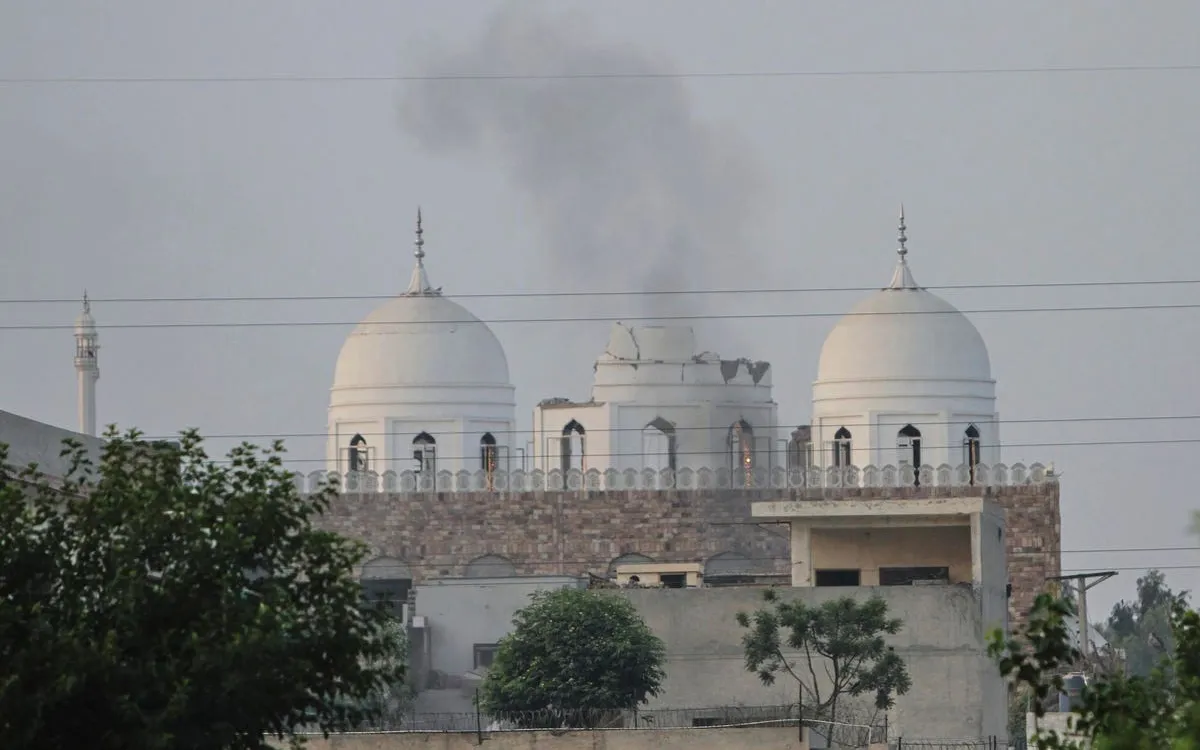
Stay updated with the most critical stories shaping global headlines by signing up for Forbes Breaking News Text Alerts. Simply text “Alerts” to (201) 335-0739 or click here to sign up for timely updates directly to your phone.
In the wake of India's recent military strikes, global leaders have expressed a range of reactions. President Donald Trump, speaking from the Oval Office, acknowledged the situation, stating, “It's a shame…I guess people knew something was going to happen based on a little bit of the past. They've been fighting for a long time…I hope it ends very quickly.”
Secretary of State Marco Rubio took to Twitter, emphasizing that he is closely monitoring the situation and echoing the President's hope for a swift resolution. He stated, “I echo @POTUS's comments earlier today that this hopefully ends quickly and will continue to engage both Indian and Pakistani leadership towards a peaceful resolution.”
China's foreign ministry described India's military operation as “regrettable,” urging both nations to prioritize peace and stability. They called for calm and restraint to avoid further complications in the already tense situation.
In contrast, Israel’s ambassador to India, Reuven Azar, expressed support for India, tweeting, “Israel supports India’s right for self-defense. Terrorists should know there’s no place to hide from their heinous crimes against the innocent.”
A spokesperson for United Nations Secretary-General Antonio Guterres voiced significant concern regarding the Indian military action, advocating for “maximum military restraint” from both sides, highlighting that “the world cannot afford a military confrontation between India and Pakistan.”
Following India's missile strikes, accusations of ceasefire violations commenced almost immediately. Both nations blamed each other for escalating tensions along the Line of Control in Kashmir. India reported that Pakistani shelling had resulted in the deaths of at least 10 individuals and injured 32 in Indian-administered Kashmir. Meanwhile, the Pakistan military alleged that Indian shelling had killed five along the border.
The conflict between India and Pakistan, both of which are nuclear-armed nations, has intensified in recent weeks, particularly after the Pahalgam attack in April that claimed 26 lives, all Indian nationals. This incident occurred amidst ongoing gunfire exchanges along the border, with India accusing Pakistan of involvement in the attack, an allegation that Pakistan dismissed as “baseless and concocted.”
India's vow of retaliation was clear, with officials stating military action from India would be “responded to assuredly and decisively.” The United States has shown a clear alignment with India during this conflict, with President Trump stating that India has “our full support and deepest sympathies.”
In a recent interview with Bloomberg TV, Pakistan’s Defense Minister Khawaja Asif reiterated that Pakistan would not initiate hostilities toward India. However, he also warned, “If India attacks, we’ll respond. If India backs down, we’ll definitely wrap up.”
Indian Air Force Wing Commander Vyomika Singh addressed the media about the strikes, asserting that India has exhibited considerable restraint. However, he emphasized that the Indian armed forces are “fully prepared to respond to Pakistani misadventures if any that will escalate the situation.”
The longstanding tension between India and Pakistan has stemmed from decades of conflict, particularly over the contested region of Kashmir. This area has been the focal point of several wars, with the most recent violent confrontation occurring in 2019 when India conducted airstrikes against Pakistan in response to a suicide bombing that killed 40 Indian paramilitary personnel in Kashmir.
For more insights into this evolving situation, read about Pakistan's claims of “credible evidence” regarding India planning military action as tensions rise between these neighboring countries.